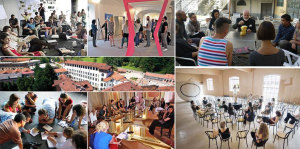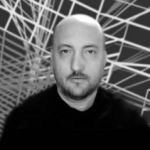 Ars Academy Research è lieta di presentare UNIDEE – Università delle Idee Città dell’Arte Fondazione Pistoletto. Una piattaforma articolata caratterizzata da un programma educativo costituito da moduli seminariali residenziali a Cittadellarte e presso le sedi di partner accademici internazionali, e da residenze artistiche.
Ars Academy Research è lieta di presentare UNIDEE – Università delle Idee Città dell’Arte Fondazione Pistoletto. Una piattaforma articolata caratterizzata da un programma educativo costituito da moduli seminariali residenziali a Cittadellarte e presso le sedi di partner accademici internazionali, e da residenze artistiche.
Il programma, in linea con le ricerche di Ars Academy Research e Planetary Collegium T-Node è basato sulla ricerca interdisciplinare, sulla condivisione di conoscenze e sullo scambio di esperienze, mira a promuovere processi di contaminazione tra saperi e pratiche, al fine di indagare la relazione tra arte e sfera pubblica.
Il programma usufruisce delle borse di studio Unidee – Città dell’Arte Fondazione Pistoletto. Le borse di studio sono parziali e totali. Verranno assegnate a seguito di una selezione a cura di Unidee: qui il modulo di partecipazione.
La prima proposta è il corso del Ricercatore T-Node PhD Massimiliano Viel, Docente di ruolo al Conservatorio di Bolzano, Musicista, membro del collettivo Otolab, per il quale sono a disposizione due borse, una a copertura totale e una parziale.
Il corso è tenuto da docenti italiani in lingua inglese.

Massimiliano Viel
Weekly residential module at Cittadellarte
TOPICS/TAGS: Listening, music perception, pattern composition, history of western music, performing arts, participation, temporality
To escape the identitary cages we are surrounded by, whilst dealing with today’s culture with its complexities, diversity and pervasiveness, a conscious approach to the whole range of music phenomena is fundamental both for curatorial and artistic/music practices and the perception of the habitual music listener.
The module puts forth an approach to music stemming from an analysis of listening, and proposes a series of techniques for music production as well as strategies to deal with music in its broadest acceptation. Specifically, it will trace the consequences of embracing the conceptual frame of cognitive patterns when dealing with the complexities of the evolution of music structures (from the history of Western musical tradition up to the forms and styles of the music practices in today’s media culture).
Alternating discussion of theoretical notions and listening experiences with practical laboratories (production/composition and performing with voice, body-percussion and found objects), the module is suitable for participants with any degree of music knowledge from novice to skilled musician, as no previous knowledge of music theory and music notation are required.